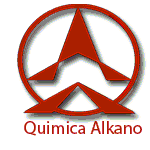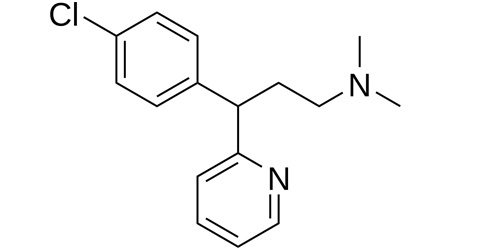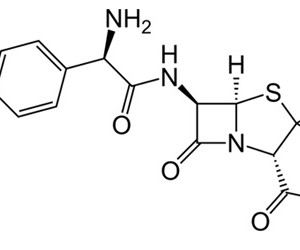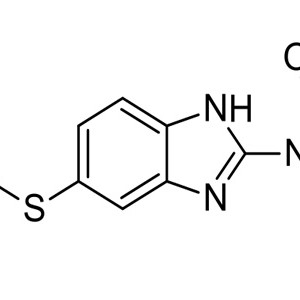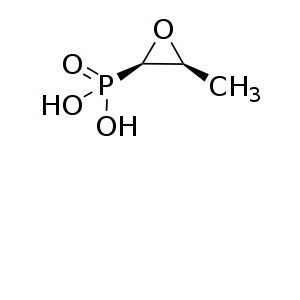Welcome visitor you can
login or register
0 items - $0.00
No products in the cart.
Chlorpheniramine Maleate
Chlorphenamine (INN), chlorpheniramine (USAN, former BAN) or piriton (trade name), commonly marketed in the form of chlorphenamine maleate (Chlorphen-12[1]), is a first-generation alkylamine antihistamine used in the prevention of the symptoms of allergic conditions such as rhinitis and urticaria. Its sedative effects are relatively weak compared to other first-generation antihistamines. Chlorphenamine is one of the most commonly used antihistamines in small-animal veterinary practice. Although not generally approved as an antidepressant or anti-anxiety medication, chlorphenamine appears to have these properties as well.[2][3]

Make an enquiry for this product
Category: Active Pharmaceutical Ingredients
Starting at
Product Description
|
3-(4-chlorophenyl)-N,N-dimethyl- 3-pyridin-2-yl-propan-1-amine |
| Trade names | Chlor-trimeton |
| AHFS/Drugs.com | monograph |
| MedlinePlus | a682543 |
| Pregnancy category |
AU: A US: B (No risk in non-human studies) |
| Legal status |
AU: S3 (Pharmacist only) UK: Pharmacy medicines US: OTC (for oral forms) |
| Routes of administration |
Oral, IV, IM, SC |
| Bioavailability | 25 to 50% |
| Protein binding | 72% |
| Metabolism | Hepatic (CYP2D6) |
| Biological half-life | 21–27 hours |
| Excretion | Renal |
| CAS Number | 113-92-8 |
| ATC code | R06AB04 |
| PubChem | CID: 2725 |
| IUPHAR/BPS | 1210 |
| DrugBank | DB01114 |
| ChemSpider | 2624 |
| UNII | 3U6IO1965U |
| KEGG | D07398 |
| ChEBI | CHEBI:52010 |
| ChEMBL | CHEMBL505 |
| Formula | C16H19ClN2 |
| Molecular mass | 274.788 g/mol |
| SMILES[show] | |
|
InChI[show] |
|
| Solubility in water | 0.55 g/100 mL, liquid mg/mL (20 °C) |
